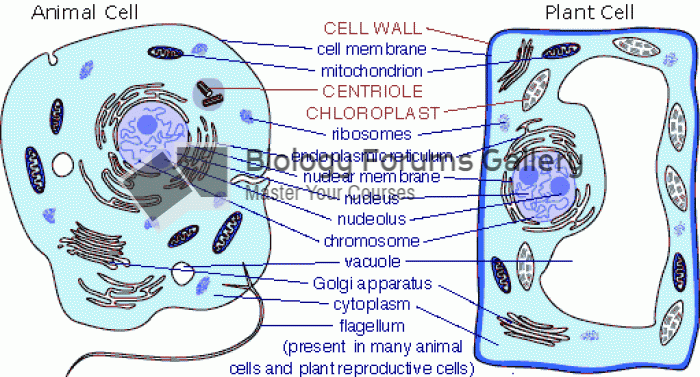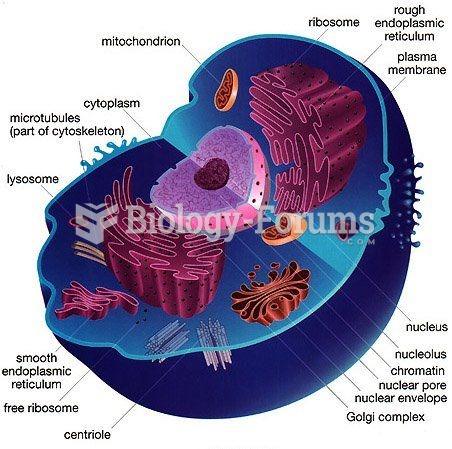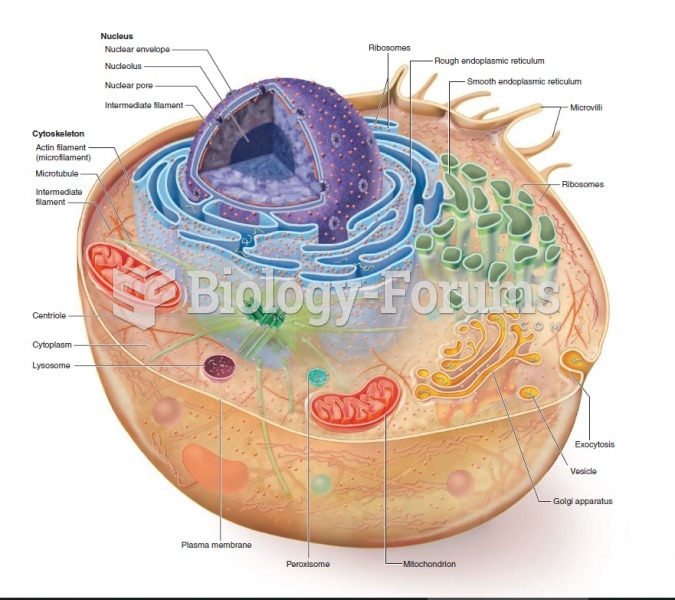Answer to Question 1Calcium is essential for bone, teeth, and eggshell formation; normal blood coagulation; and milk production.
Phosphorus is essential for the formation of bones, teeth, and body fluids and is required for metabolism,
cell respiration, enzyme-based reactions, and normal reproduction.
Potassium is required for many body functions, such as maintaining osmotic pressure, acidbase balance,
activating enzymes, regulating neuromuscular activity, helping to regulate heartbeat, and digestion.
Sodium is the chief cation of blood plasma and other extracellular fluids and plays a role in the
transmission of nerve impulses and in the absorption of sugars and amino acids from the digestive tract.
Chlorine is associated with sodium and potassium in acidbase relationships and osmotic regulation.
Sulfur is a component of cartilage, bone, tendons, and blood vessels and is an important part of the
respiratory process.
Magnesium is necessary in the activation of many enzyme systems, particularly those involved with
carbohydrate and lipid metabolism, and for proper functioning of the nervous system.
Iron is necessary in the formation of hemoglobin.
Copper is necessary for proper iron absorption, hemoglobin formation, in various enzyme systems, and in
the synthesis of keratin for hair and wool growth.
Iodine is important in the production of thyroxin by the thyroid gland.
Cobalt is an important compound of the vitamin B12 molecule and is necessary in ruminant animals for
proper synthesis of vitamin B12.
Manganese is involved with the enzyme systems that influence estrus, ovulation, fetal development, udder
development, milk production, growth, and skeletal development.
Zinc is needed for the body's immune system, for the manufacture of proteins and genetic material, for the
activity of more than 200 enzymes, for stimulating hair growth, for the sense of smell and taste, and for healing
wounds.
Molybdenum is a component of the enzyme xanthine oxidase and is important in stimulating action of
rumen organisms.
Selenium is necessary for the absorption and utilization of vitamin E.
Answer to Question 2Toxicity refers to the negative effects of substances on an animal. In this chapter it refers to the effects of
overfeeding or over-supplementation of vitamins or minerals.







